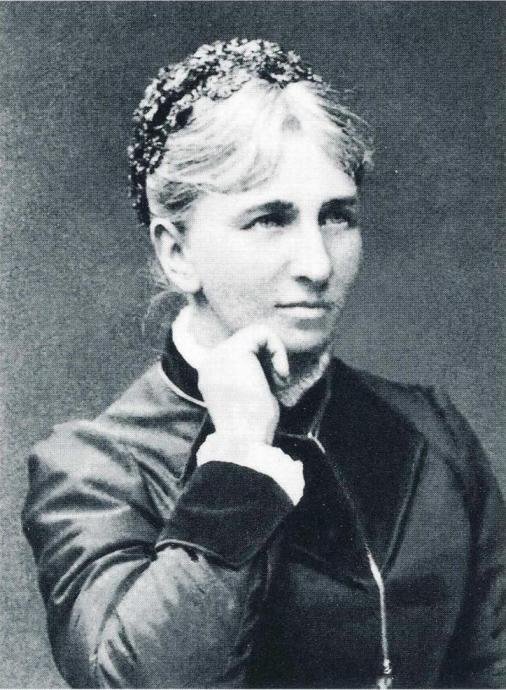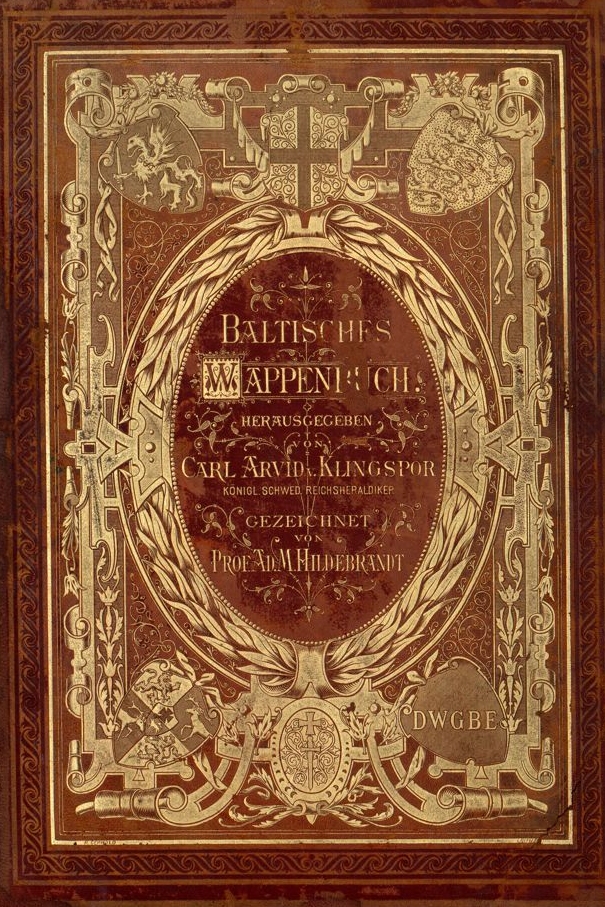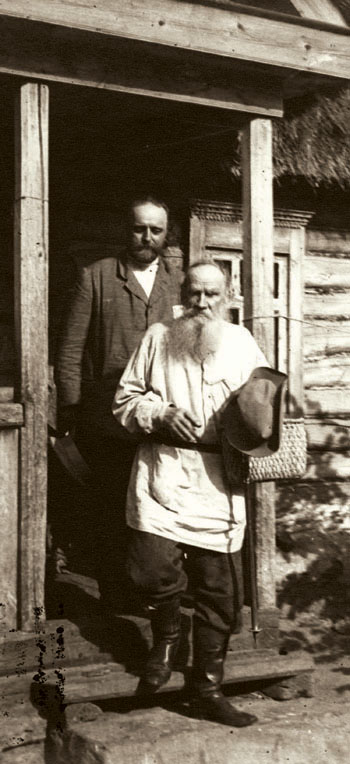|
Elisabeth Järnefelt
Elisabeth Järnefelt (née Clodt von Jürgensburg; 11 January 1839 – 3 February 1929) was a Finnish salonist, known as "the mother of Finnish art and culture".Biografiskt lexikon för Finland 2. Ryska tiden (2009). Life Elisabeth's parents were the general and wood engraver Konstantin Karlovitj Clodt von Jürgensburg and Catharina Vigné. She was educated first at a girls school and then at home, and raised in Saint Petersburg in Russia. Elisabeth married August Aleksander Järnefelt on 22 December 1857 at Saint Petersburg, and settled with him in Helsinki in Finland. Their children were , Arvid, Erik, Ellida, Ellen, Armas, Aino, Hilja and Sigrid. Armas, Arvid and Erik were famous Finnish cultural figures. Daughter Aino Järnefelt was married to composer Jean Sibelius. Elisabeth Järnefelt was also a good friend of the writer Juhani Aho. Her marriage was not a happy one. After the birth of their last child, her spouse decided to live in chastity: he was described as a ... [...More Info...] [...Related Items...] OR: [Wikipedia] [Google] [Baidu] |
Elisabeth Järnefelt
Elisabeth Järnefelt (née Clodt von Jürgensburg; 11 January 1839 – 3 February 1929) was a Finnish salonist, known as "the mother of Finnish art and culture".Biografiskt lexikon för Finland 2. Ryska tiden (2009). Life Elisabeth's parents were the general and wood engraver Konstantin Karlovitj Clodt von Jürgensburg and Catharina Vigné. She was educated first at a girls school and then at home, and raised in Saint Petersburg in Russia. Elisabeth married August Aleksander Järnefelt on 22 December 1857 at Saint Petersburg, and settled with him in Helsinki in Finland. Their children were , Arvid, Erik, Ellida, Ellen, Armas, Aino, Hilja and Sigrid. Armas, Arvid and Erik were famous Finnish cultural figures. Daughter Aino Järnefelt was married to composer Jean Sibelius. Elisabeth Järnefelt was also a good friend of the writer Juhani Aho. Her marriage was not a happy one. After the birth of their last child, her spouse decided to live in chastity: he was described as a ... [...More Info...] [...Related Items...] OR: [Wikipedia] [Google] [Baidu] |
Juhani Aho
Juhani Aho, originally Johannes Brofeldt (11 September 1861 – 8 August 1921), was a Finnish author and journalist. He was nominated for the Nobel prize in literature twelve times. Early life Juhani Aho was born at Lapinlahti in 1861. His parents were Henrik Gustaf Theodor Brofeldt and Karolina Fredrika Emelie "Emma" Brofeldt (née Snellman). The Brofeldts were a priestly family: Theodor was a relatively well-known revivalist preacher whose sermons were published in 1917 as ''Rovasti H. G. Th. Brofeldtin saarnoja'' and his father had been a chaplain and his grandfather a vicar. Juhani had two younger brothers Kaarlo Kustaa Brofeldt (1865–1936) and Petter Fredrik Brofeldt (1864–1945) who, following Juhani's example, adopted the Finnish names Kalle and Pekka as well as the surname Aho. From 1872 to 1880 Juhani Aho attended the Kuopion Lyseo, one of the few upper secondary schools offering education in Finnish. During his time at the school he adopted the pen name Juhani ... [...More Info...] [...Related Items...] OR: [Wikipedia] [Google] [Baidu] |
Finnish Salon-holders
Finnish may refer to: * Something or someone from, or related to Finland * Culture of Finland * Finnish people or Finns, the primary ethnic group in Finland * Finnish language Finnish ( endonym: or ) is a Uralic language of the Finnic branch, spoken by the majority of the population in Finland and by ethnic Finns outside of Finland. Finnish is one of the two official languages of Finland (the other being Swedis ..., the national language of the Finnish people * Finnish cuisine See also * Finish (other) * Finland (other) * Suomi (other) * {{disambiguation Language and nationality disambiguation pages ... [...More Info...] [...Related Items...] OR: [Wikipedia] [Google] [Baidu] |
19th-century Finnish Nobility
The 19th (nineteenth) century began on 1 January 1801 ( MDCCCI), and ended on 31 December 1900 ( MCM). The 19th century was the ninth century of the 2nd millennium. The 19th century was characterized by vast social upheaval. Slavery was abolished in much of Europe and the Americas. The First Industrial Revolution, though it began in the late 18th century, expanding beyond its British homeland for the first time during this century, particularly remaking the economies and societies of the Low Countries, the Rhineland, Northern Italy, and the Northeastern United States. A few decades later, the Second Industrial Revolution led to ever more massive urbanization and much higher levels of productivity, profit, and prosperity, a pattern that continued into the 20th century. The Islamic gunpowder empires fell into decline and European imperialism brought much of South Asia, Southeast Asia, and almost all of Africa under colonial rule. It was also marked by the collapse of the large ... [...More Info...] [...Related Items...] OR: [Wikipedia] [Google] [Baidu] |
Finnish People Of Baltic German Descent
Finnish may refer to: * Something or someone from, or related to Finland * Culture of Finland * Finnish people or Finns, the primary ethnic group in Finland * Finnish language, the national language of the Finnish people * Finnish cuisine See also * Finish (other) * Finland (other) * Suomi (other) Suomi means ''Finland'' in Finnish. It may also refer to: *Finnish language * Suomi (surname) * Suomi, Minnesota, an unincorporated community * Suomi College, in Hancock, Michigan, now referred to as Finlandia University * Suomi Island, Western ... * {{disambiguation Language and nationality disambiguation pages ... [...More Info...] [...Related Items...] OR: [Wikipedia] [Google] [Baidu] |
Baltic Nobility
Baltic German nobility was a privileged social class in the territories of today's Estonia and Latvia. It existed continuously since the Northern Crusades and the medieval foundation of Terra Mariana. Most of the nobility were Baltic Germans, but with the changing political landscape over the centuries, Polish, Swedish and Russian families also became part of the nobility, just as Baltic German families re-settled in locations such as the Swedish and Russian Empires. The nobility of Lithuania is for historical, social and ethnic reasons separated from the German-dominated nobility of Estonia and Latvia. History This nobility was a source of officers and other servants to Swedish kings in the 16th and particularly 17th centuries, when Couronian, Estonian, Livonian and the Oeselian lands belonged to them. Subsequently Russian Tsars used Baltic nobles in all parts of local and national government. Latvia in particular was noted for its followers of Bolshevism and the latter were ... [...More Info...] [...Related Items...] OR: [Wikipedia] [Google] [Baidu] |
People From Helsinki
A person ( : people) is a being that has certain capacities or attributes such as reason, morality, consciousness or self-consciousness, and being a part of a culturally established form of social relations such as kinship, ownership of property, or legal responsibility. The defining features of personhood and, consequently, what makes a person count as a person, differ widely among cultures and contexts. In addition to the question of personhood, of what makes a being count as a person to begin with, there are further questions about personal identity and self: both about what makes any particular person that particular person instead of another, and about what makes a person at one time the same person as they were or will be at another time despite any intervening changes. The plural form "people" is often used to refer to an entire nation or ethnic group (as in "a people"), and this was the original meaning of the word; it subsequently acquired its use as a plural form of ... [...More Info...] [...Related Items...] OR: [Wikipedia] [Google] [Baidu] |
1929 Deaths
Nineteen or 19 may refer to: * 19 (number), the natural number following 18 and preceding 20 * one of the years 19 BC, AD 19, 1919, 2019 Films * ''19'' (film), a 2001 Japanese film * ''Nineteen'' (film), a 1987 science fiction film Music * 19 (band), a Japanese pop music duo Albums * ''19'' (Adele album), 2008 * ''19'', a 2003 album by Alsou * ''19'', a 2006 album by Evan Yo * ''19'', a 2018 album by MHD * ''19'', one half of the double album ''63/19'' by Kool A.D. * ''Number Nineteen'', a 1971 album by American jazz pianist Mal Waldron * ''XIX'' (EP), a 2019 EP by 1the9 Songs * "19" (song), a 1985 song by British musician Paul Hardcastle. * "Nineteen", a song by Bad4Good from the 1992 album '' Refugee'' * "Nineteen", a song by Karma to Burn from the 2001 album ''Almost Heathen''. * "Nineteen" (song), a 2007 song by American singer Billy Ray Cyrus. * "Nineteen", a song by Tegan and Sara from the 2007 album '' The Con''. * "XIX" (song), a 2014 song by Slipk ... [...More Info...] [...Related Items...] OR: [Wikipedia] [Google] [Baidu] |
1839 Births
Events January–March * January 2 – The first photograph of the Moon is taken, by French photographer Louis Daguerre. * January 6 – Night of the Big Wind: Ireland is struck by the most damaging cyclone in 300 years. * January 9 – The French Academy of Sciences announces the daguerreotype photography process. * January 19 – British forces capture Aden. * January 20 – Battle of Yungay: Chile defeats the Peru–Bolivian Confederation, leading to the restoration of an independent Peru. * January – The first parallax measurement of the distance to Alpha Centauri is published by Thomas Henderson. * February 11 – The University of Missouri is established, becoming the first public university west of the Mississippi River. * February 24 – William Otis receives a patent for the steam shovel. * March 5 – Longwood University is founded in Farmville, Virginia. * March 7 – Baltimore City College, the third public high school in the United States, is ... [...More Info...] [...Related Items...] OR: [Wikipedia] [Google] [Baidu] |
Tolstoyan Movement
The Tolstoyan movement is a social movement based on the philosophical and religious views of Russian novelist Leo Tolstoy (1828–1910). Tolstoy's views were formed by rigorous study of the ministry of Jesus, particularly the Sermon on the Mount. Tolstoy expressed "great joy" that groups of people "have been springing up, not only in Russia but in various parts of Europe, who are in complete agreement with our views." However, the author also thought it was a mistake to create a specific movement or doctrine after him, urging individuals to listen to their own conscience rather than blindly follow his. In regard to a letter he received from an adherent, he wrote: Beliefs and practices Tolstoyans (Russian:''Толстовцы'', ''Tolstovtsy'') identify themselves as Christians, but do not generally belong to an institutional Church. Tolstoy was a harsh critic of the Russian Orthodox Church, leading to his excommunication in 1901. Tolstoyans tend to focus more on following ... [...More Info...] [...Related Items...] OR: [Wikipedia] [Google] [Baidu] |
Fennoman Movement
The Fennoman movement or Fennomania was a Finnish nationalist movement in the 19th-century Grand Duchy of Finland, built on the work of the ''fennophile'' interests of the 18th and early-19th centuries. History After the Crimean War, Fennomans founded the Finnish Party and intensified the language strife, yearning to raise the Finnish language and Finnic culture from peasant status to the position of a national language and a national culture. The opposition, the Svecomans, tried to defend the status of Swedish and the ties to the Germanic world. Although the notion of ''Fennomans'' was not as common after the generation of Juho Kusti Paasikivi (born 1870), their ideas have dominated the Finns' understanding of their nation. The mother tongue of many of the first generation of Fennomans, like Johan Vilhelm Snellman, was Swedish. Some of the originally Swedish-speaking Fennomans learned Finnish, and made a point of using it inside and outside the home. Several Fennomans w ... [...More Info...] [...Related Items...] OR: [Wikipedia] [Google] [Baidu] |
Jean Sibelius
Jean Sibelius ( ; ; born Johan Julius Christian Sibelius; 8 December 186520 September 1957) was a Finnish composer of the late Romantic and 20th-century classical music, early-modern periods. He is widely regarded as his country's greatest composer, and his music is often credited with having helped Finland develop a national identity during its Independence of Finland, struggle for independence from Russia. The core of his oeuvre is his Discography of Sibelius symphony cycles, set of seven symphonies, which, like his other major works, are regularly performed and recorded in Finland and countries around the world. His other best-known compositions are ''Finlandia'', the ''Karelia Suite'', ''Valse triste (Sibelius), Valse triste'', the Violin Concerto (Sibelius), Violin Concerto, the choral symphony ''Kullervo (Sibelius), Kullervo'', and ''The Swan of Tuonela'' (from the ''Lemminkäinen Suite''). His other works include pieces inspired by nature, Nordic mythology, and the Finni ... [...More Info...] [...Related Items...] OR: [Wikipedia] [Google] [Baidu] |



_1938.jpg)


